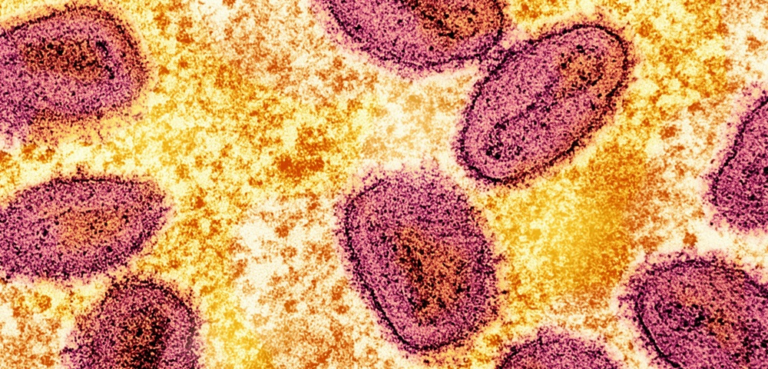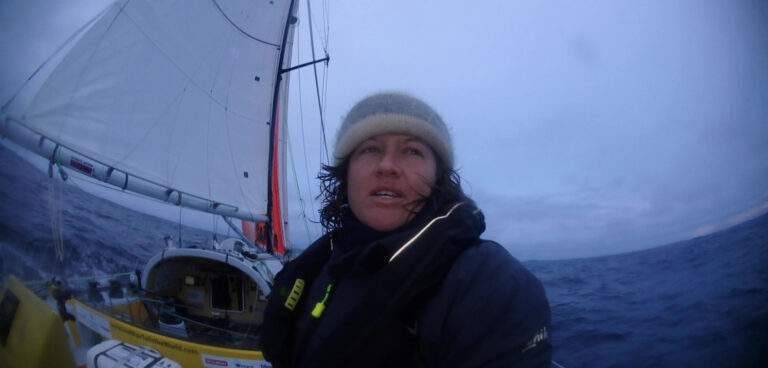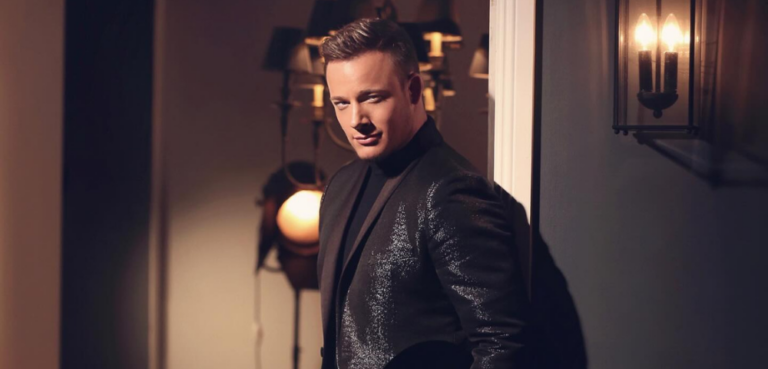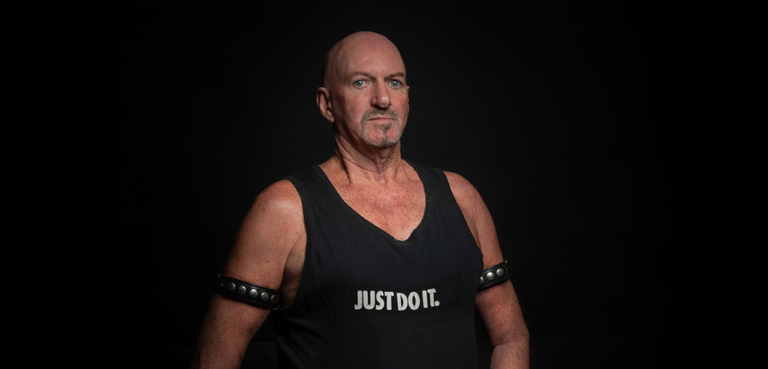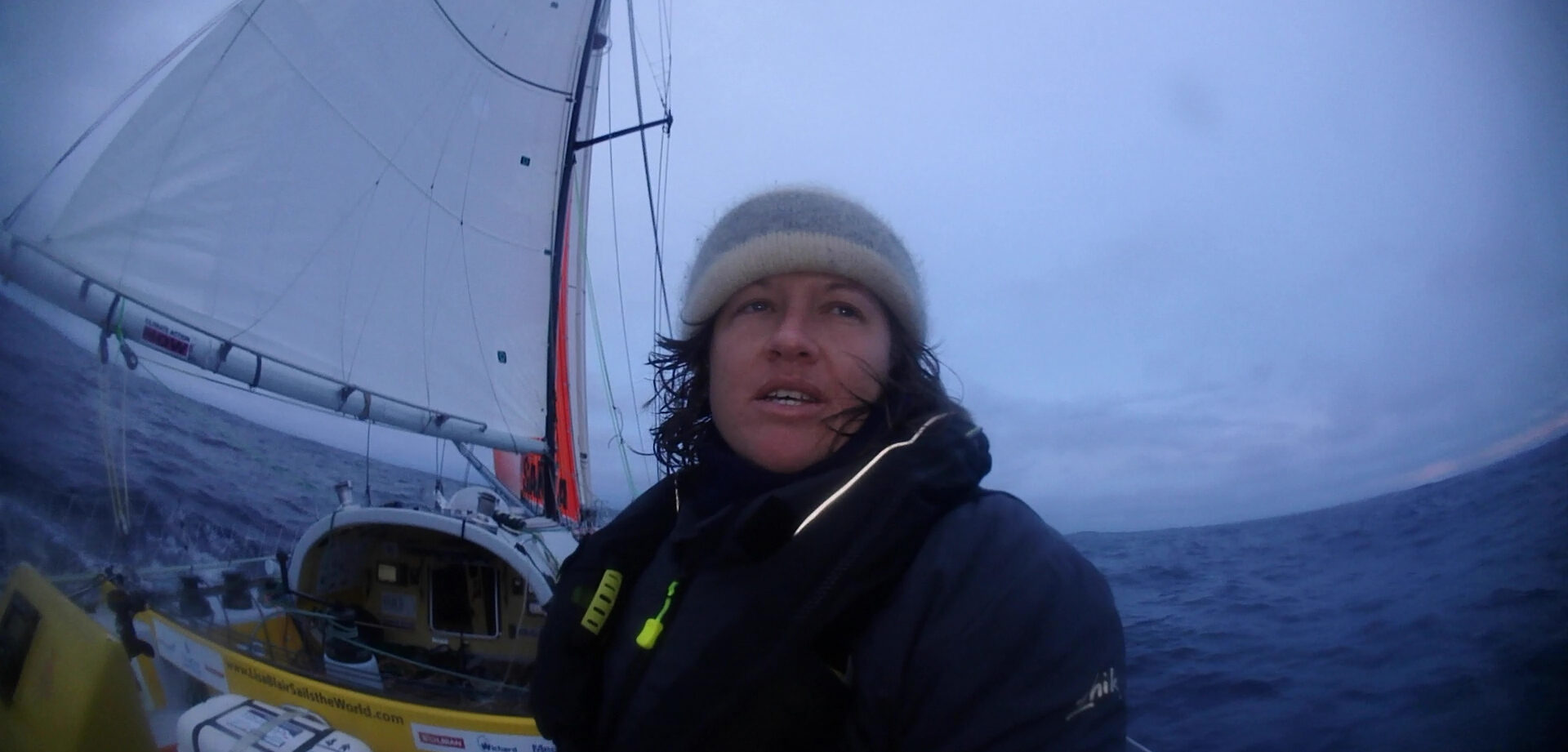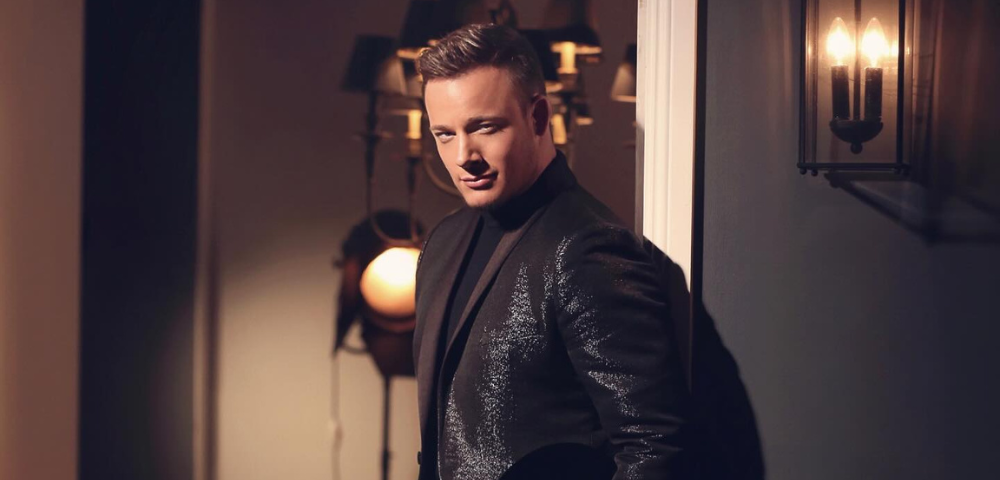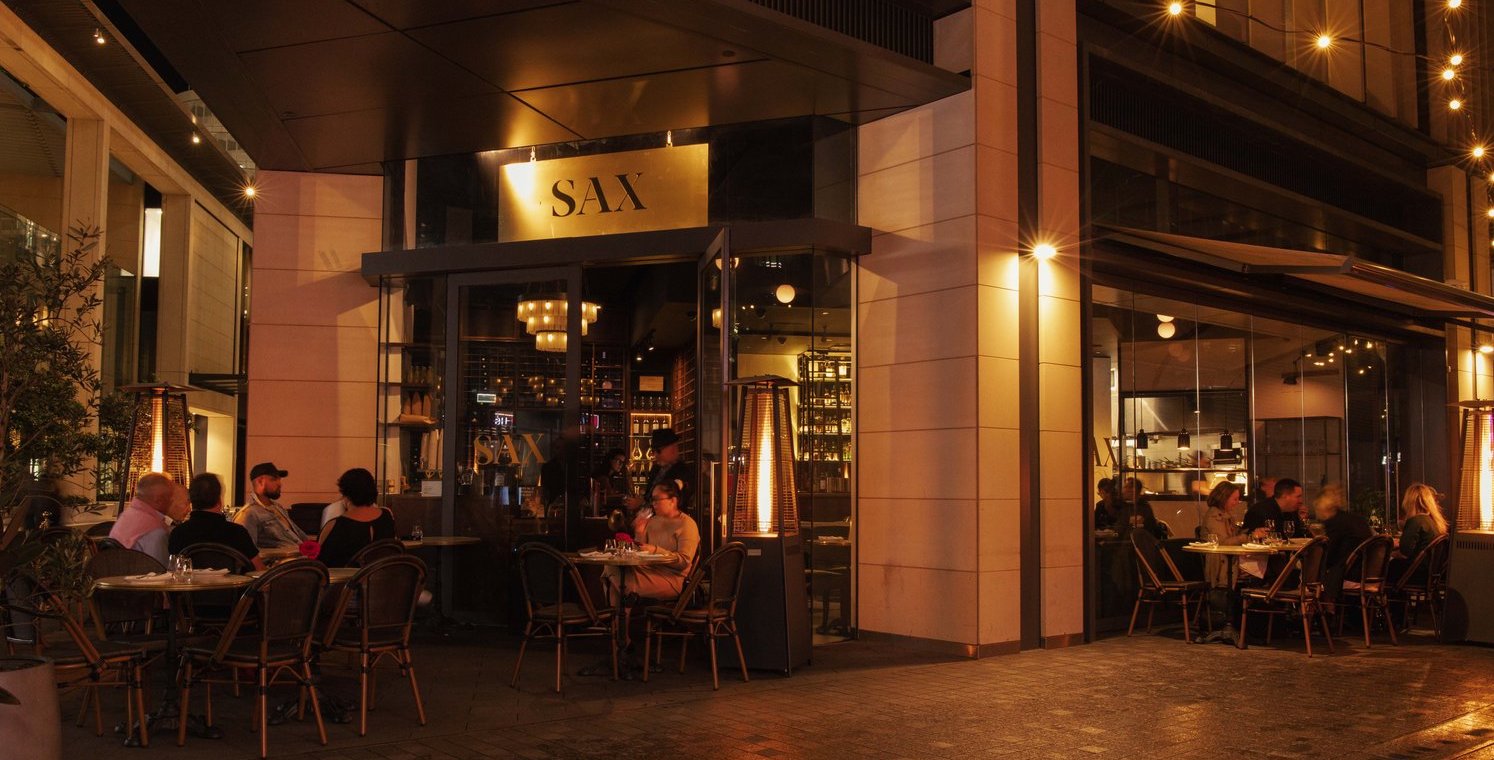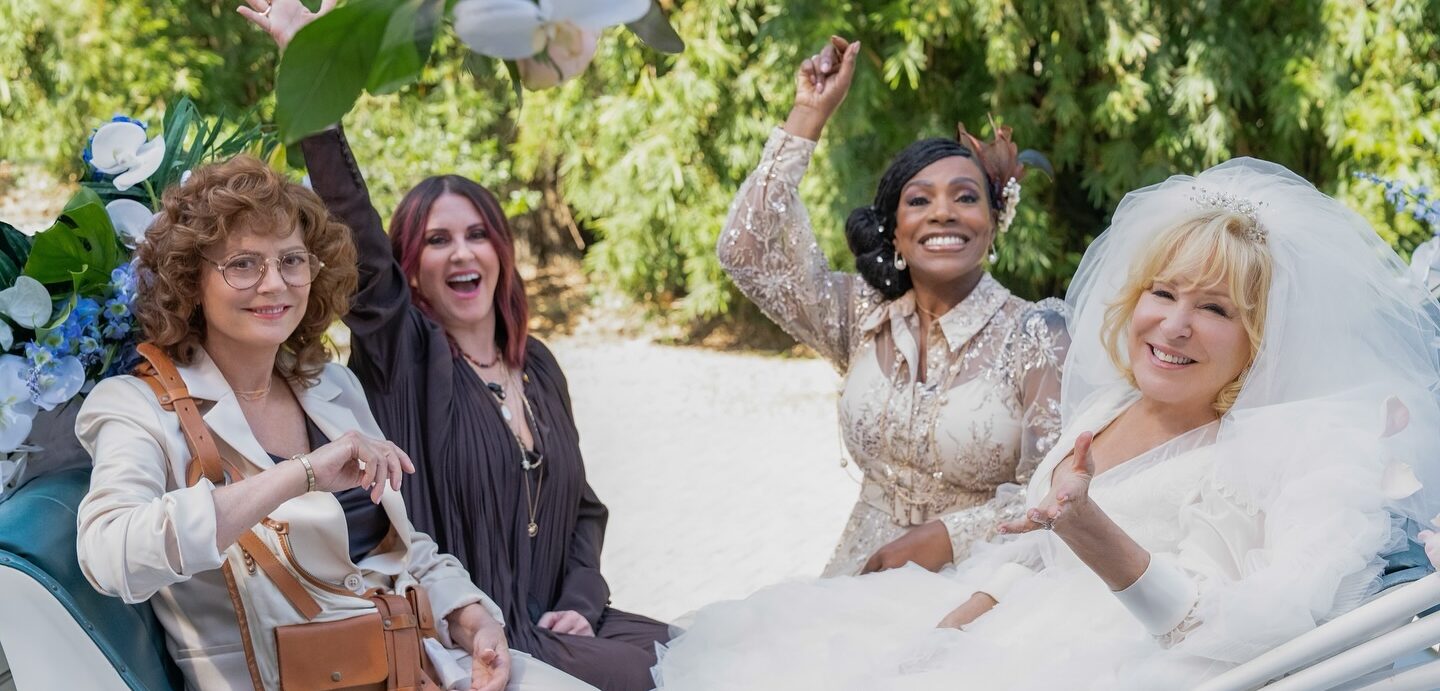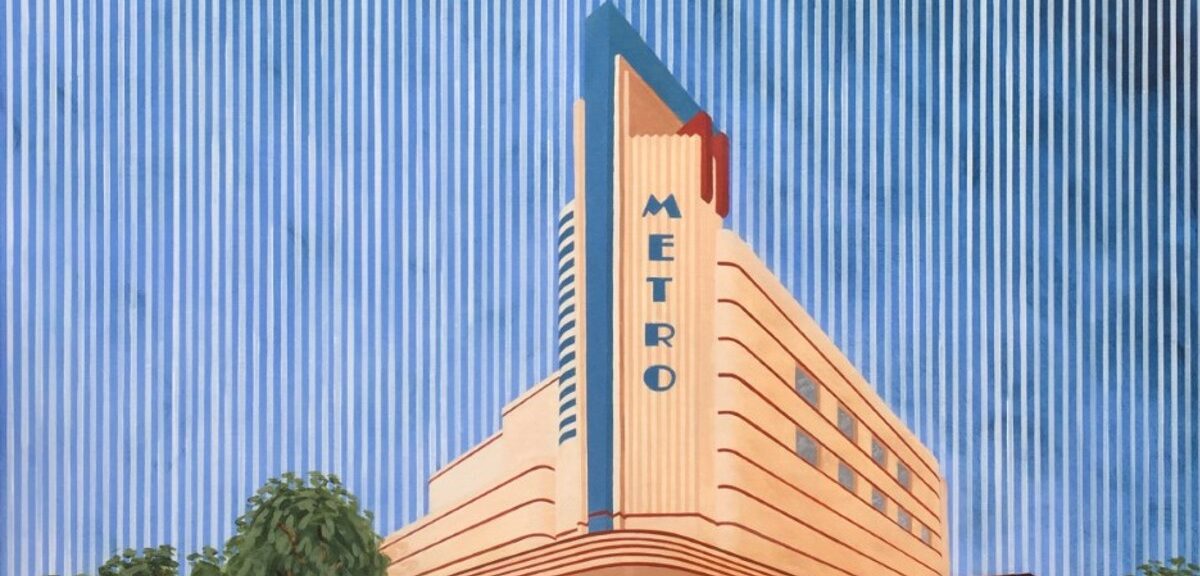
WomanLifeFreedom and Peace: Nazanin Boniadi
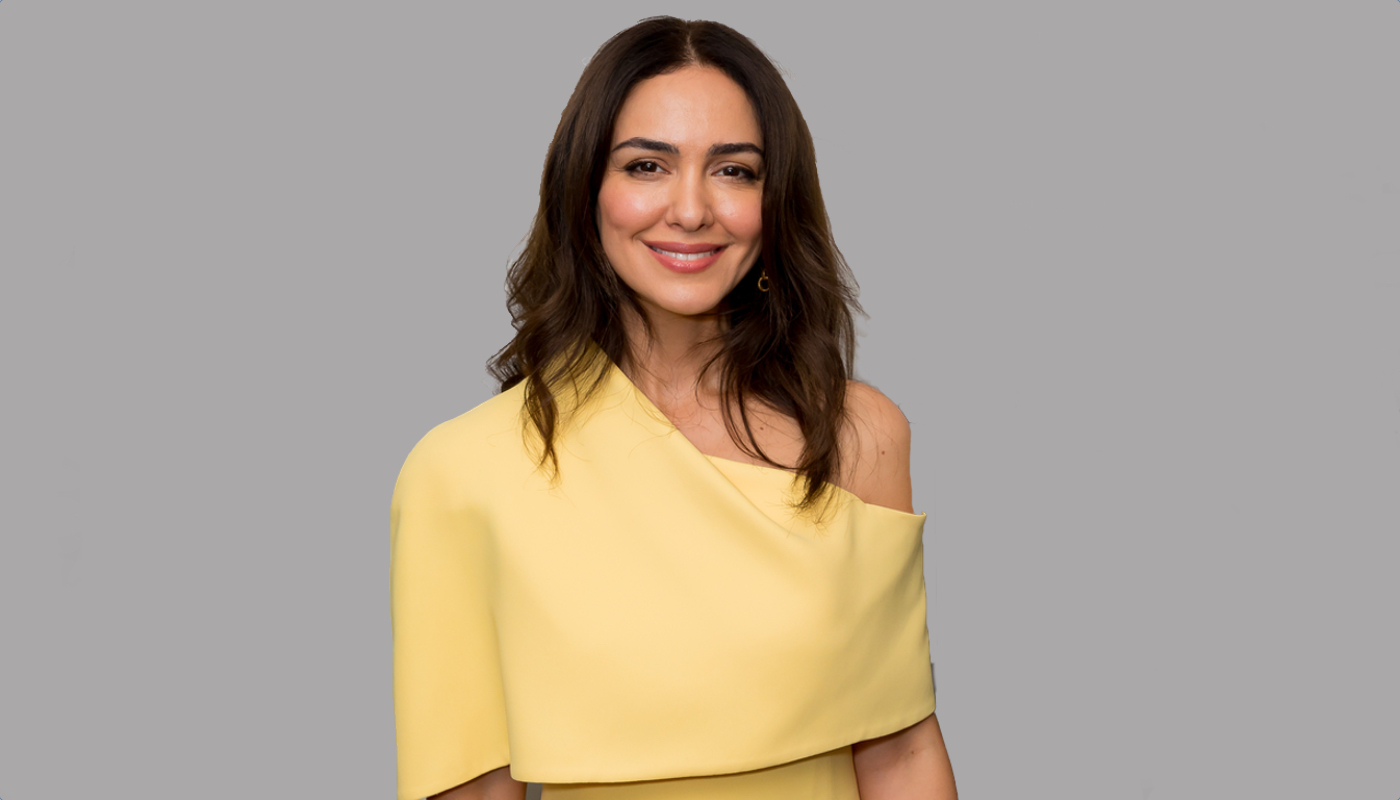
This year’s recipient of the Sydney Peace Prize is actor and activist, Nazanin Boniadi, recognised for her continuous advocacy on behalf of oppressed women and children in Iran.
Boniadi was born in Iran but was an activist by proxy even before then – she was in her mother’s womb when both her parents attended a protest against the newly formed theocracy in Iran in 1979. Tens of thousands of women and men were met with violence, imprisoned, and exiled under the brutal regime of the Ayatollah Khomeini.
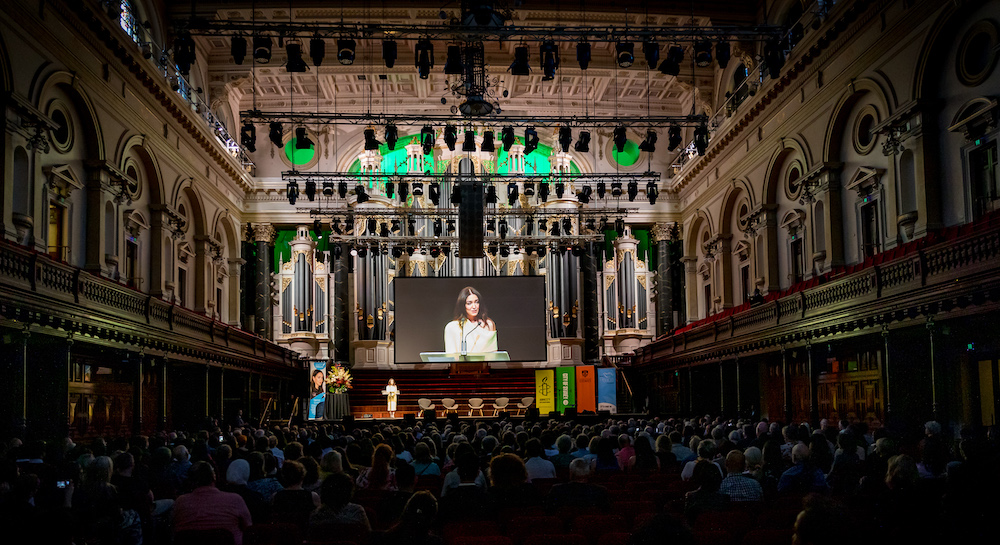
Boniadi’s parents were forced to seek political asylum in the UK when she was only three weeks old. She grew up with the privileges afforded by democracy, attending university in the US, forging a successful acting career, then becoming a spokesperson for Amnesty International and independent advocate.
In her speech at the Sydney Peace Prize award ceremony at Sydney Town Hall, Boniadi acknowledged how fortunate she was to be there.
“While I stand before you, my fellow artists and activists inside [Iran] are denied their livelihoods and lives for daring to dissent. It doesn’t escape me that their destiny could have easily been mine.”
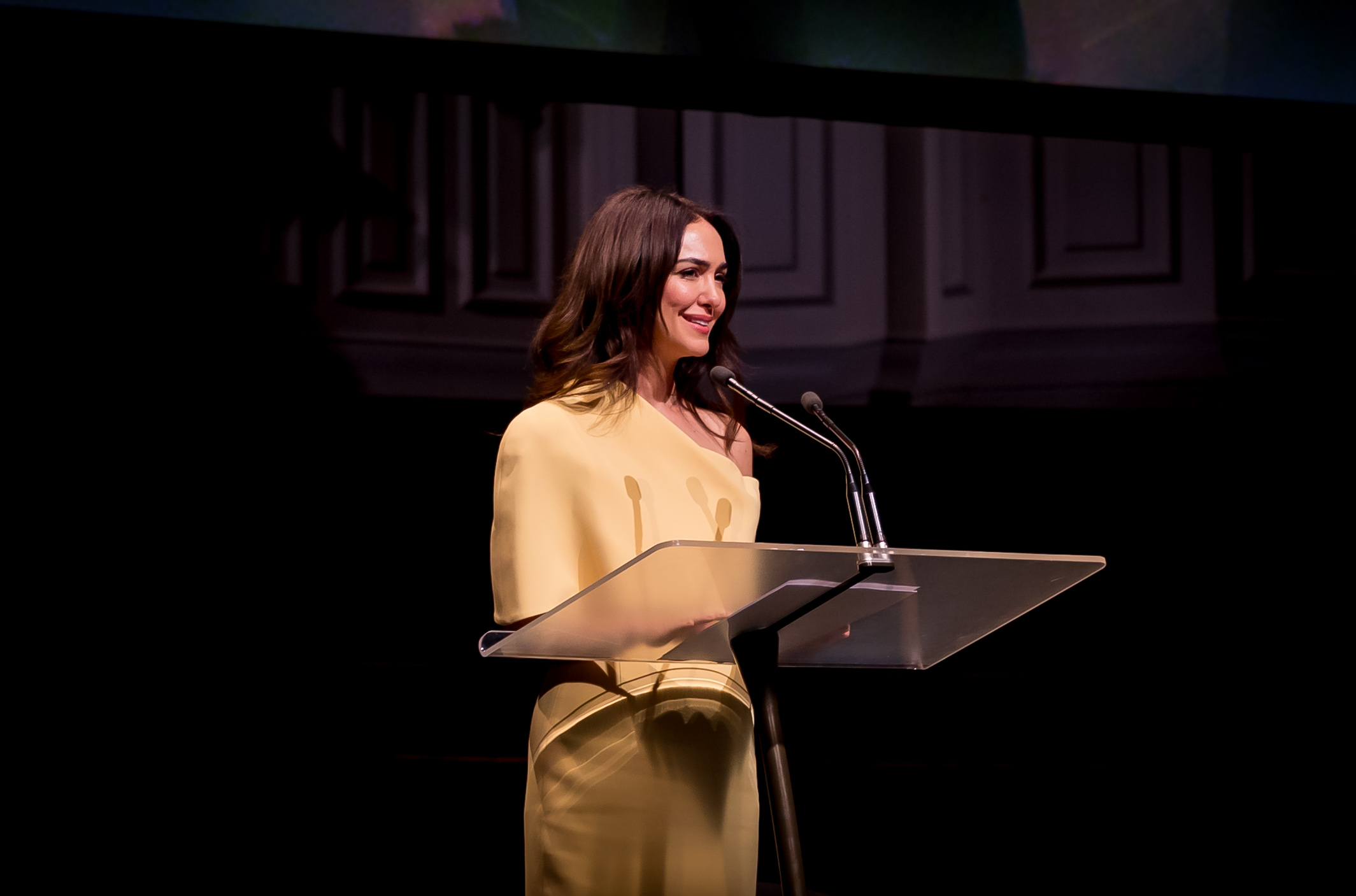
Though she had already been an activist for more than a decade, Boniadi was galvanised by the murder in 2022 of Mahsa Amini, a Kurdish-Iranian women who was arrested by the morality police for “inappropriate wearing of the hijab.”
Amini’s murder instigated a massive movement under the banner, WomanLifeFreedom, which Boniadi has fortified with her high profile support.
“Women have been both the spark and the engine of these uprisings. Despite the threat of an unspeakable assault on their minds, bodies and souls, young school girls have taken to the streets, removing their mandatory head coverings while chanting ‘we don’t want an Islamic republic!’” said Boniadi in her speech, calling the movement the first female-led revolution of our time.
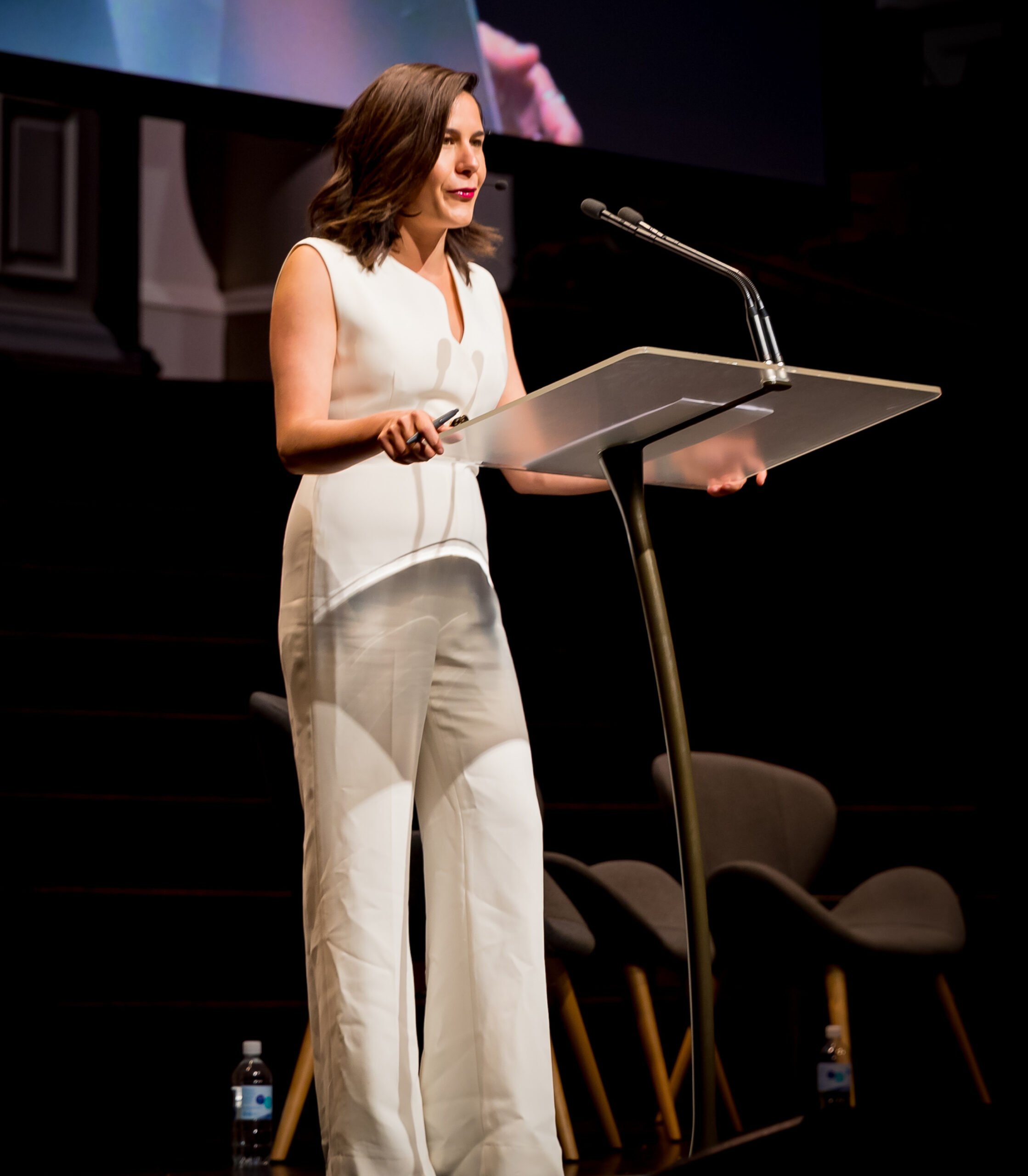
In Brazil, Argentina, Chile, Phillipines, Poland, history and social science scholarship have shown a direct correlation between the success of protest movements and the participation of women, Boniadi told an attentive Town Hall audience.
“If the women and people of Iran succeed in achieving the freedom they deserve, this could be the most positive development for regional and global security and peace in decades.”
At the end of her speech, Boniadi was given a lengthy standing ovation before being presented with the beautiful Sydney Peace Prize statuette by Lord Mayor Clover Moore, a long time patron of Sydney Peace Foundation.
Boniadi then joined a panel convened by journalist and presenter, Jan Fran, and comprising: Shokoofeh Azar, International Booker Prize and Stella Prize nominated Iranian- Australian author and journalist; Gelareh Pour, acclaimed Iranian-born singer and songwriter; and Dr Kylie Moore-Gilbert, leading political scientist and expert in Middle East. Dr Gilbert was held for 804 days in prison in Iran.
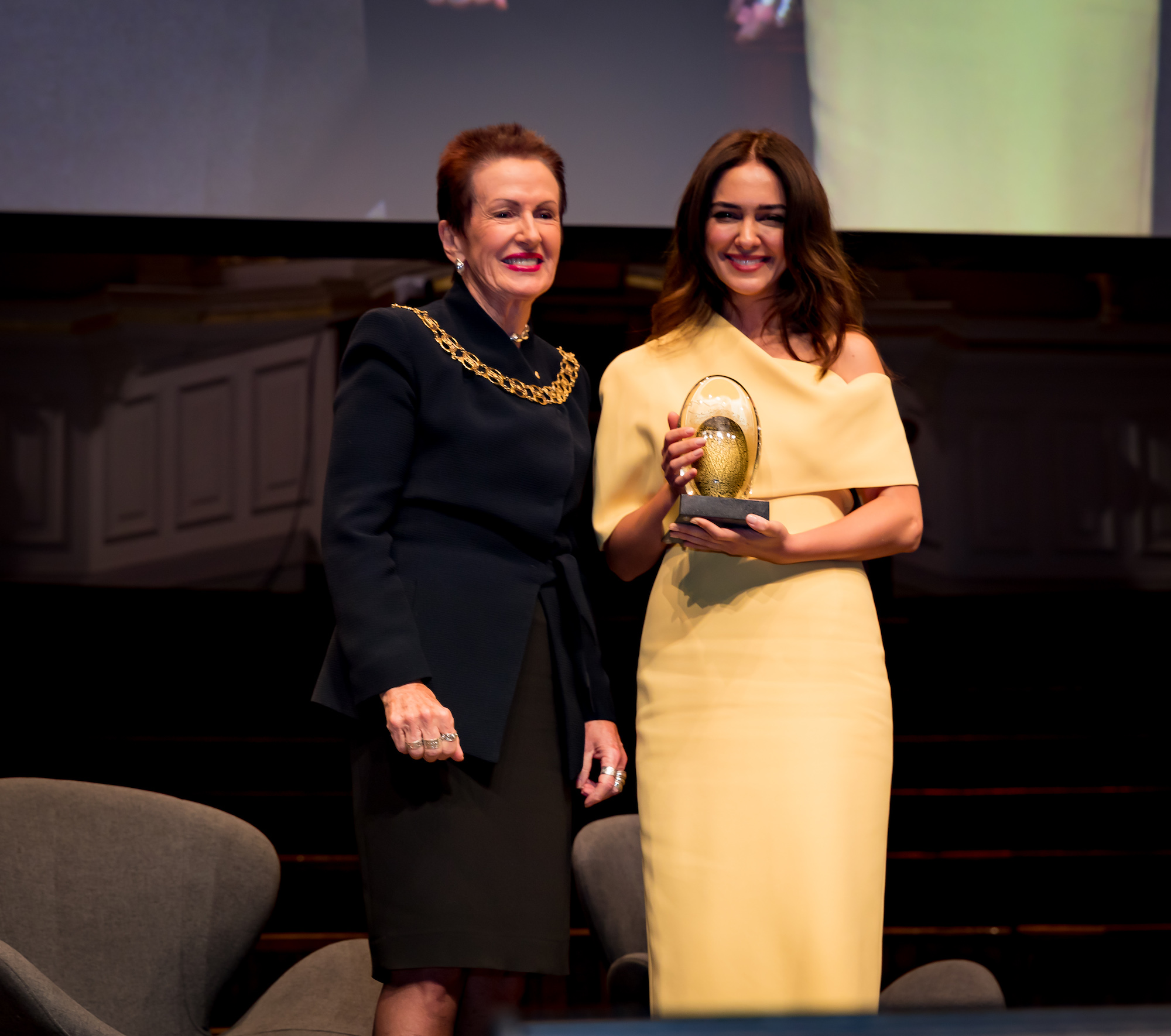
Azar spoke of her complex relationship with Islam. She was young when Ayatollah Khomeini came to power, and she felt restricted and confused by the laws regarding women’s coverings.
“It was later I came to understand that the whole regime was based on my body…if I cover my body, Islam is protected, if not, Islam is not protected,” she said.
It made her hate and reject the religion until she left Iran and explored other countries where the Islam was practiced.
“And I saw so many different versions of Islam in all of these countries….Islam in Turkmenistan was so nice…everybody had their lifestyles, nobody asked you to do this, do that…”
In some countries, the conditions were even worse than in Iran. What Azar concluded was that authoritarian interpretation had more to do with politics and power than the true doctrine of Islam.
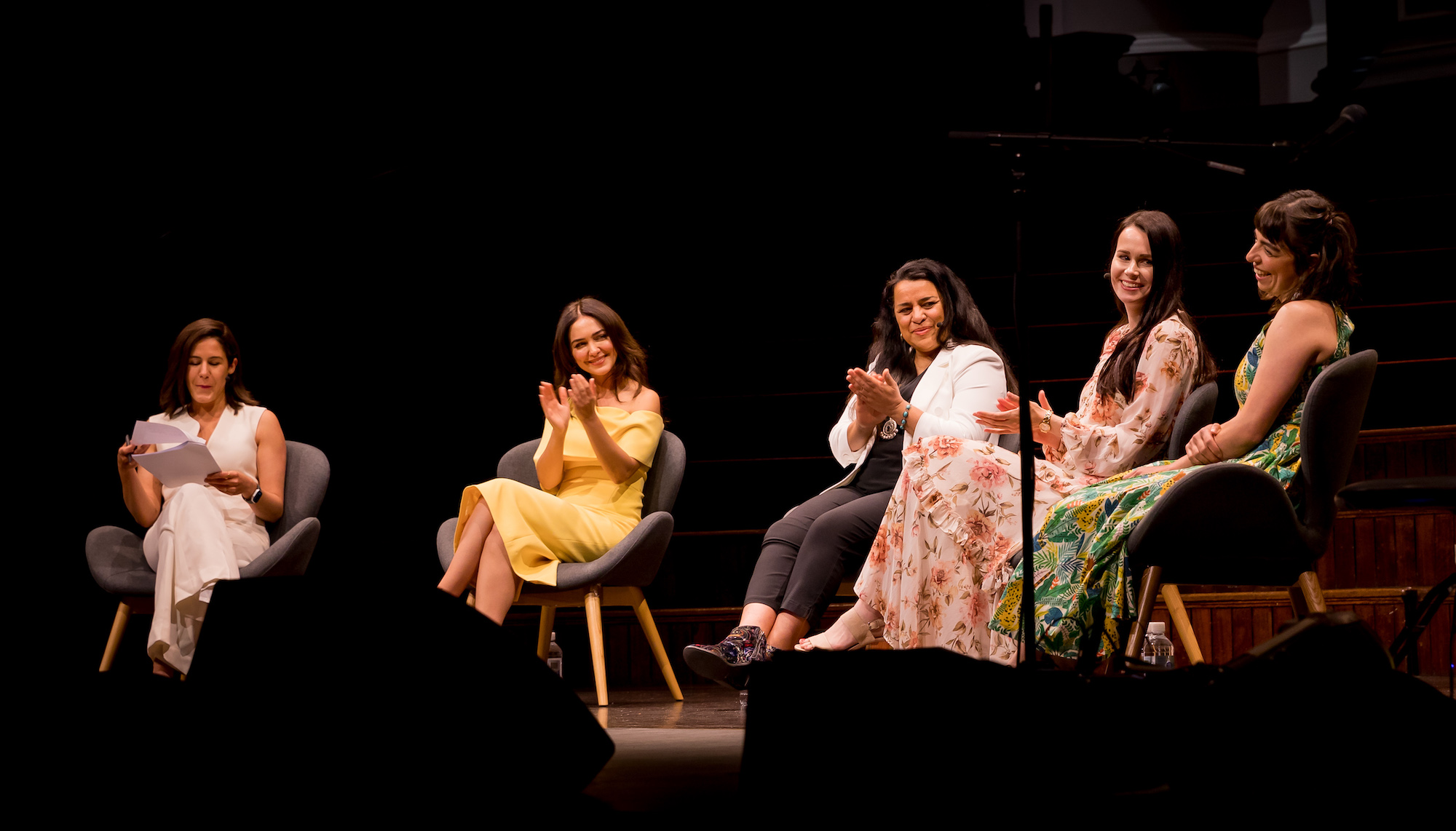
“When politics and religion comes together, it’s horrible.”
Fran asked the panel about the place of art in activism and Azar described the vantage point of being a writer outside Iran.
“For the first time ever I saw Khomeini as a fictional character, and as someone I was able to mock. So in this way I had my revenge.”
Gelareh Pour had to escape Iran to even be able to sing. Women cannot sing, create music or express themselves in any way under the oppressive regime. Pour explained that not only did this stifle women in their creativity, it actually inhibited their true identity.
“Who are we? What are we capable of? They don’t even give us a chance to understand that,” she said.
Pour explains that there are not any role models, there are no visible women artists in Iran, so she and others like her can’t even aspire, can’t even imagine the possibility of being an artist.
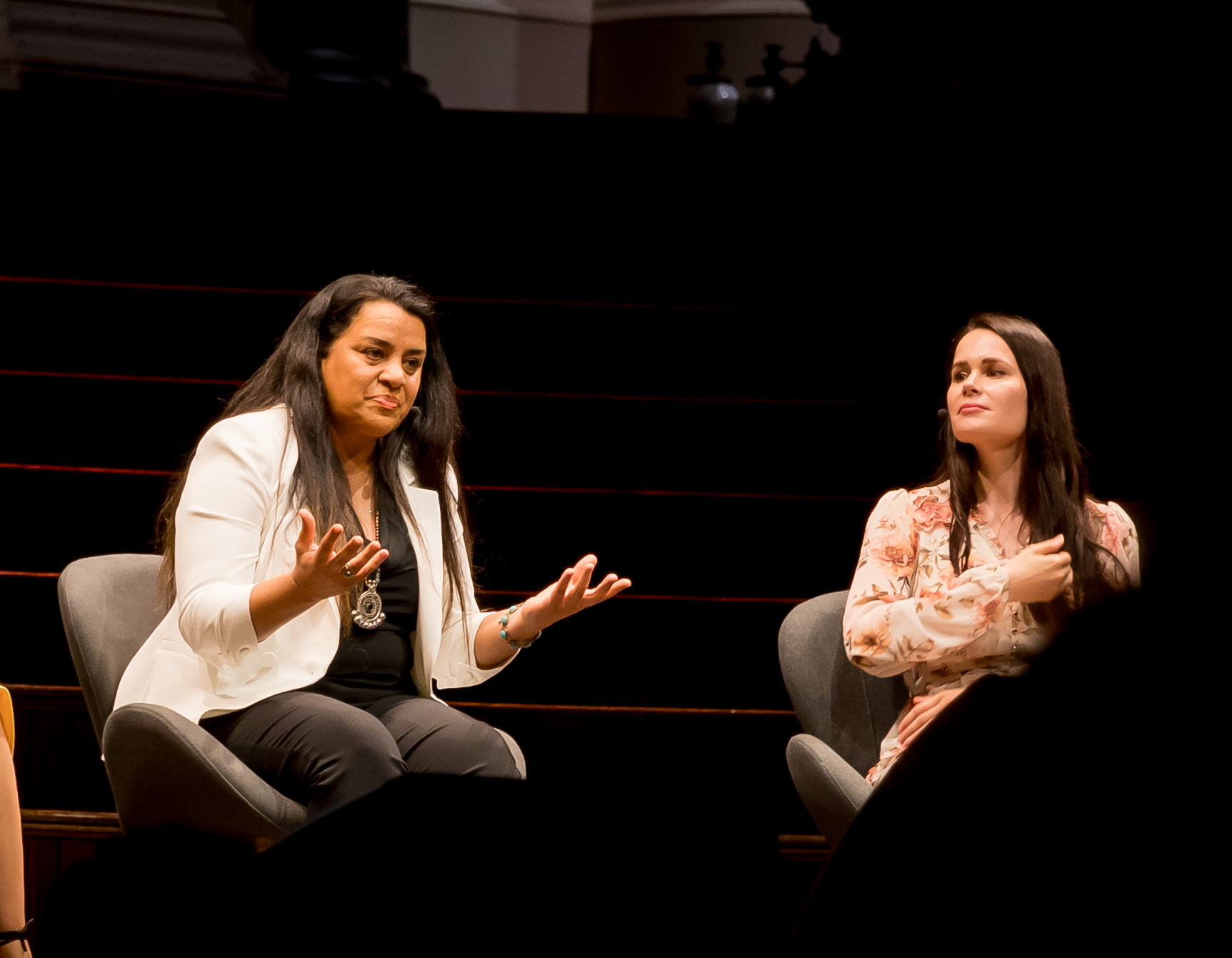
“But when you move out and you experience that, you find yourself.”
Her music meant that leaving Iran did not mean abandoning it altogether.
“I think as an artist you’re always connected to anywhere you live, but being apart from Iran I always felt really lucky to be able to have the culture of Iran through my music and poetry and be connected.”
British-Australian academic, Dr Kylie Moore-Gilbert was imprisoned in Iran in 2018 on spurious espionage charges. She survived emotionally and mentally thanks to her own resilience and resourcefulness and the kinship of fellow prisoners.
“I learned that Iranian women are remarkable people, remarkably strong,” she told the Town Hall audience. Asked what can be done from Australia to help women in Iran, she responded:
“We can continue to keep the message of WomanLifeFreedom alive…we can continue to talk about it, we can continue to attend events like this, we can show our solidarity with the brave women and men of Iran and show them that they’re not alone.”
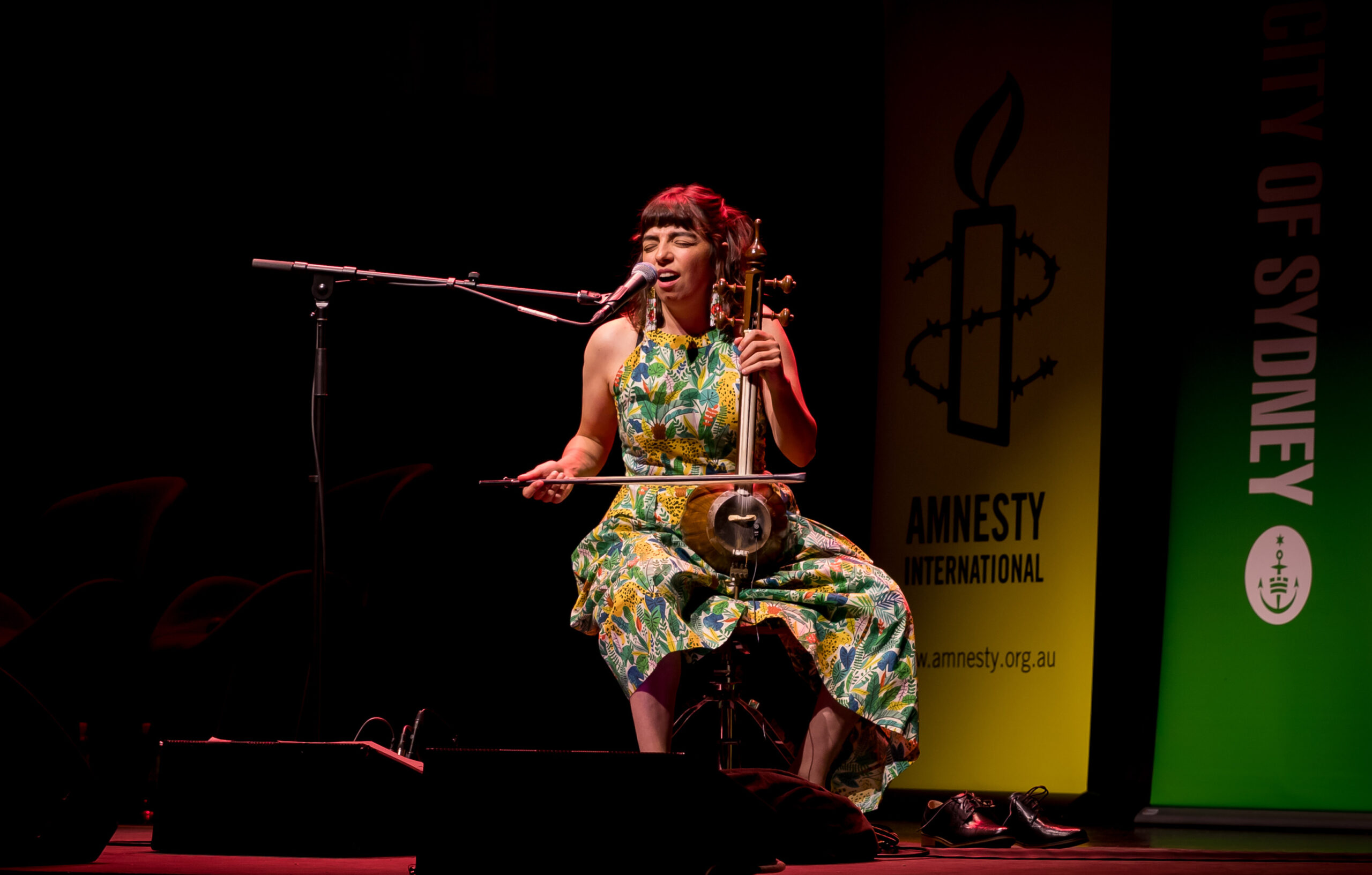
In a brief interview with City Hub after the event, Boniadi shared her thoughts on what can be done from afar.
“I think it’s really important that we use our voices and our votes to make sure that democracy prevails, and what that looks like is educating yourselves about what your lawmakers envision for Australia’s future. And hopefully that’s aligned with unity — democracies need to unite against autocracies, and any policy that would help that benefits the people of Australia.”
With regard to the place of art in activism, Boniadi said:
“You know so much of what I do as an artist is, of course, storytelling; using empathy to portray the human condition, and as an activist I [seek] to change the human condition through storytelling, again telling the stories of brave protestors in Iran and their plight and their struggles, and again that requires empathy. So I think storytelling and empathy are the common thread between art and activism.”
And, on the what the Sydney Peace Prize means to her:
“I mean it’s a huge honour, really, because I view myself as a conduit and a megaphone for the Iranian people I really think what this moment means to me is the opportunity – which I’m so grateful for – to centre the Iranian people and their struggles on the world stage and to be able to amplify their voices and really celebrate them and their courage.”
